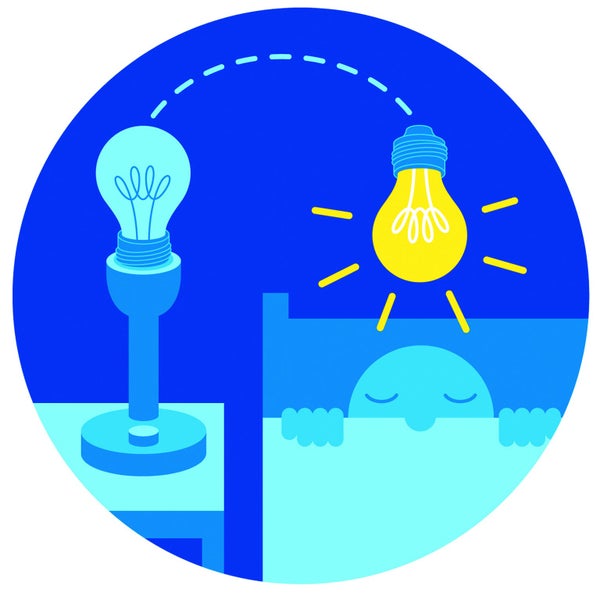When you are stuck on a problem, sometimes it is best to stop thinking about it—consciously, anyway. Research has shown that taking a break or a nap can help the brain create pathways to a solution. Now a new study expands on the effect of this so-called incubation by using sound cues to focus the sleeping mind on a targeted problem.
When humans sleep, parts of the brain replay certain memories, strengthening and transforming them. About a decade ago researchers developed a technique, called targeted memory reactivation (TMR), aimed at further reinforcing selected memories: when a sound becomes associated with a memory and is later played during sleep, that memory gets reactivated. In a study published last November in Psychological Science, scientists tested whether revisiting the memory of a puzzle during sleep might also improve problem-solving.
About 60 participants visited the laboratory before and after a night of sleep. In an evening session, they attempted spatial, verbal and conceptual puzzles, with a distinct music clip repeating in the background for each, until they had worked on six puzzles they could not solve. Overnight they wore electrodes to detect slow-wave sleep—slumber's deepest phase, which may be important for memory consolidation—and a device played the sounds assigned to three of the six unsolved puzzles. The next day, back at the lab, the participants attempted the six puzzles again. (Each repeated the experiment with a different set of puzzles the following night.) All told, the subjects solved 32 percent of the sound-prompted puzzles versus 21 percent of the untargeted puzzles—a boost of more than 50 percent.
On supporting science journalism
If you're enjoying this article, consider supporting our award-winning journalism by subscribing. By purchasing a subscription you are helping to ensure the future of impactful stories about the discoveries and ideas shaping our world today.
The researchers “very bravely went for quite complex tasks that involved a lot of complex processing, and remarkably they found these really strong effects in all of their tasks,” says Penny Lewis, a psychologist at Cardiff University, who was not involved in the research. “These are supercool results. Now we need to go out and try to understand them by firstly replicating them and secondly trying to work out the component processes that are actually being influenced.”
Beyond providing new evidence that humans restructure memories while sleeping, the research may have practical implications. “In a futuristic world, maybe TMR could help us use sleep to work on our problems,” says lead author Kristin Sanders, who was a graduate student at Northwestern University during the study. Sleep-monitoring technology is increasingly accessible—and even without gadgets, prospective solvers can focus on important problems before bed.
Still, sleep is not magic; people need to do their homework and load their heads with the puzzle pieces involved. “I'm not going to solve cancer with this technique,” Sanders says, “because I don't know anything about cancer research.”
